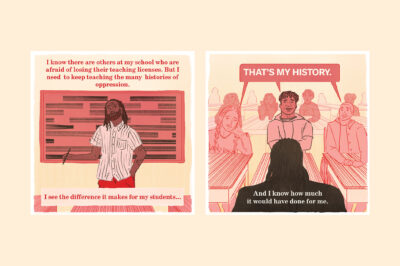ACLU of New Jersey Successfully Challenges Subpoena for Student Journalist's Death Penalty Documentary Notes
FOR IMMEDIATE RELEASE
NEWARK – The American Civil Liberties Union of New Jersey announced today that a federal court has blocked the forced disclosure of video-taped interviews that Rowan University student Jason Kitchen had created for a documentary about a New Jersey death row inmate.
“This ruling was a confirmation of the First Amendment guarantee of freedom of the press and it is a victory for student journalists in particular,” said Robert Balin, an ACLU cooperating attorney with the New York law firm Davis Wright Tremaine. “Although a student, Jason Kitchen was as much a reporter as any other documentary filmmaker, and the state cannot decide to go rummaging through his materials any more than it can through the materials of a reporter working for a daily newspaper.”
At issue in the case was whether student filmmakers such as Kitchen are covered by the journalists’ privilege — a public policy that shields the press from compelled disclosure of their newsgathering materials — and whether the state could override the presumption against disclosure in this case. New Jersey officials had subpoenaed Kitchen’s material for their defense against Marshall’s federal petition challenging his death sentence based upon ineffective assistance of counsel.
Referring to the state’s subpoena as “fishing expedition,” United States District Judge Joseph Irenas ruled that Kitchen’s work was protected by the press privilege. “I’m extremely pleased with the decision,” said Kitchen, 22, an aspiring filmmaker and June graduate of Rowan University. “It will help ensure the ability of students with creative intentions to conduct projects in the future.”
Kitchen’s film, “Fatal Mistakes,” is a 56-minute documentary about the case of Robert Marshall, who was sentenced to death in 1986 for hiring someone to murder his wife. Kitchen created the film for a television documentary production course at Rowan University. He and his crew interviewed a number of individuals involved in Marshall’s case, including Marshall himself. This was the first filmed interview of Marshall since his conviction in 1986.
Following the interview, the state served subpoenas on both Rowan University and Kitchen in July 2003, seeking “all videotapes, notes and documents pertaining to interviews” that Kitchen had conducted of Marshall, his son, his trial attorney, the trial prosecutor and the chief investigator. The state subsequently narrowed its subpoena to the Marshall interview materials and also moved to take Marshall’s deposition, in keeping with the legal requirement to seek alternative sources for information. That motion was granted last week.
In seeking to quash the subpoenas, the ACLU argued that federal courts have recognized a qualified privilege protecting journalists from the compelled disclosure of both confidential and non-confidential sources and newsgathering information. The courts have also consistently held that the privilege is not limited to members of the traditional print and broadcast news media, but may be invoked by documentary filmmakers and student journalists such as Kitchen and anyone who engages in investigative reporting with the intent to disseminate the information to the public.
ACLU of New Jersey cooperating attorneys in the case are Balin and Matthew Leish of Davis Wright Tremaine in New York City and Bruce Rosen of McCusker, Anselmi, Rosen, Carvelli & Walsh in Chatham, New Jersey. The case is Robert O. Marshall v. Roy Hendricks.
Stay Informed
Every month, you'll receive regular roundups of the most important civil rights and civil liberties developments. Remember: a well-informed citizenry is the best defense against tyranny.



